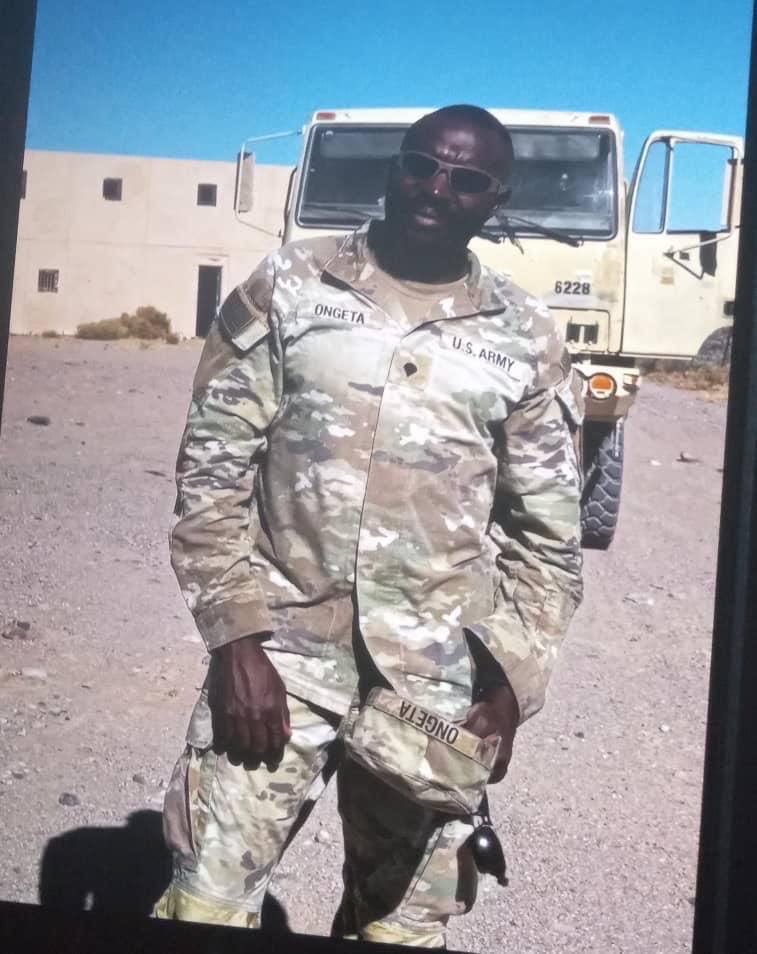The arrest of a dual U.S.–Kenyan citizen at the Sirari border with alleged possession of military-grade explosives comes at a moment of delicate political balance in Tanzania. As the country emerges from a disputed general election and braces for demonstrations planned on December 9, the event cannot be read in isolation—it ties directly into the complex interplay between domestic politics, regional dynamics, and global power competition in East Africa.
According to the official police statement from Tarime–Rorya dated November 16, 2025, authorities apprehended Charles Onkuri Ongeta, a U.S.–Kenyan dual citizen and the U.S. military officer, attempting to cross from Kenya into Tanzania with four hand grenades.
While the details remain under investigation, the timing is significant. Tanzania’s government, still managing post-election anxiety, faces planned nationwide protests that opposition figures claim will “reclaim democracy.” The discovery of a foreign national carrying explosives at a sensitive border point offers the state a potent narrative: that unrest may not be purely domestic, but externally influenced.
Such an incident strengthens the argument for intensified border surveillance, communication controls, and preventive security operations—measures already visible through tightened checkpoints and digital monitoring across major cities. The government of President Samia Suluhu Hassan has spent months walking a tightrope between asserting control and maintaining Tanzania’s image as a peaceful democracy.
The October 29 election triggered criticism from Western observers and local clerics who decried restrictions on the opposition and media. Now, the arrest gives the state a strategic justification for securitizing civic dissent, portraying potential demonstrations as part of a coordinated destabilization effort.
In Tanzanian political tradition, national security trumps political protest. The linkage of an armed foreigner to border infiltration—real or perceived—cements the government’s legitimacy in using force preemptively to “protect peace,” a narrative widely resonant with the public’s trauma from regional instability in Kenya, Sudan, and the Great Lakes. The Sirari border, connecting Kenya’s Migori County and Tanzania’s Tarime District, has long been both a lifeline for trade and a vulnerability for illicit flows. Tanzania’s leadership has repeatedly accused non-state actors and political financiers from Nairobi of influencing internal discourse online, particularly during election cycles.
Conversely, Kenya views Tanzania’s growing assertiveness—as seen in tighter customs regimes, LNG expansion in Lindi, and China-backed infrastructure projects—as part of a broader reorientation that dilutes Nairobi’s regional dominance. The Sirari arrest, therefore, lands in an already tense bilateral climate. Beyond regional rivalry, Tanzania’s position in global geopolitics has evolved rapidly. The United States has traditionally maintained strong diplomatic and development ties, with over $3 billion annually in aid and trade. Yet, Chinese influence through Belt and Road investments—especially in port, rail, and energy infrastructure—has deepened Beijing’s footprint. Meanwhile, Moscow has intensified outreach through arms cooperation and energy deals.
The alleged involvement of an American citizen in a security incident complicates this equilibrium. It risks creating diplomatic friction while reinforcing Tanzanian narratives that external powers often operate with competing agendas in Africa. The government can leverage the case to demonstrate independence: rejecting foreign interference while courting both Eastern and Western economic partnerships.
The upcoming demonstrations, timed with Tanzania’s Independence Day on December 9, represent a symbolic test of the government’s tolerance for dissent. Whether peaceful or confrontational, the state’s handling will define perceptions of legitimacy both domestically and internationally. Should violence erupt, the government may frame it as validation of its warnings about external manipulation. If calm prevails, Dar es Salaam could claim success in maintaining order without compromising sovereignty.
Tanzania’s security posture is likely to harden in the coming weeks, with heightened intelligence and police deployment around key urban centers such as Arusha, Mwanza, and Dar es Salaam. Cross-border coordination with Kenya may intensify, though mutual suspicion will remain. Internationally, the government will use this episode to reinforce its non-aligned stance, balancing partnerships with the U.S., China, and Russia while insisting on respect for its sovereignty.
The Tarime–Rorya arrest encapsulates a defining feature of East African politics in 2025: the blurring line between security and democracy. As Tanzania navigates internal dissent, regional competition, and global realignment, it is deploying security narratives not merely as protection but as diplomacy. Whether this approach stabilizes the nation or tightens control at the cost of openness will be revealed in the weeks surrounding December 9.


